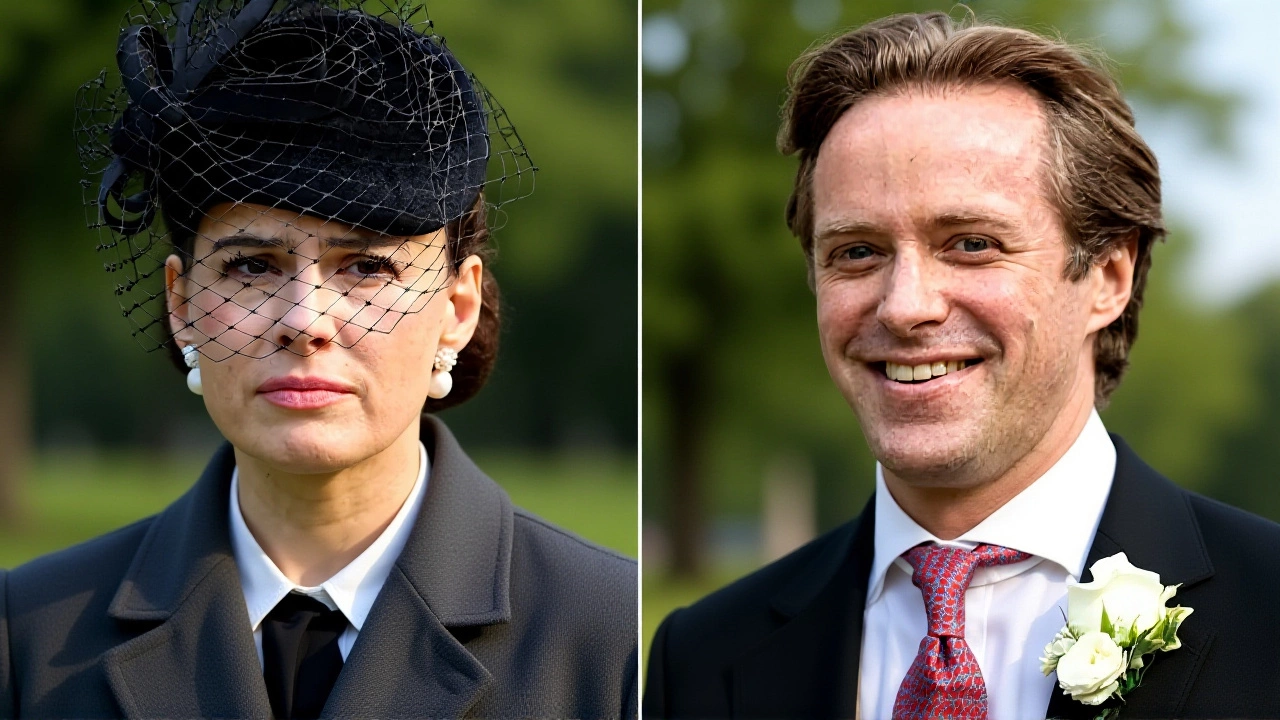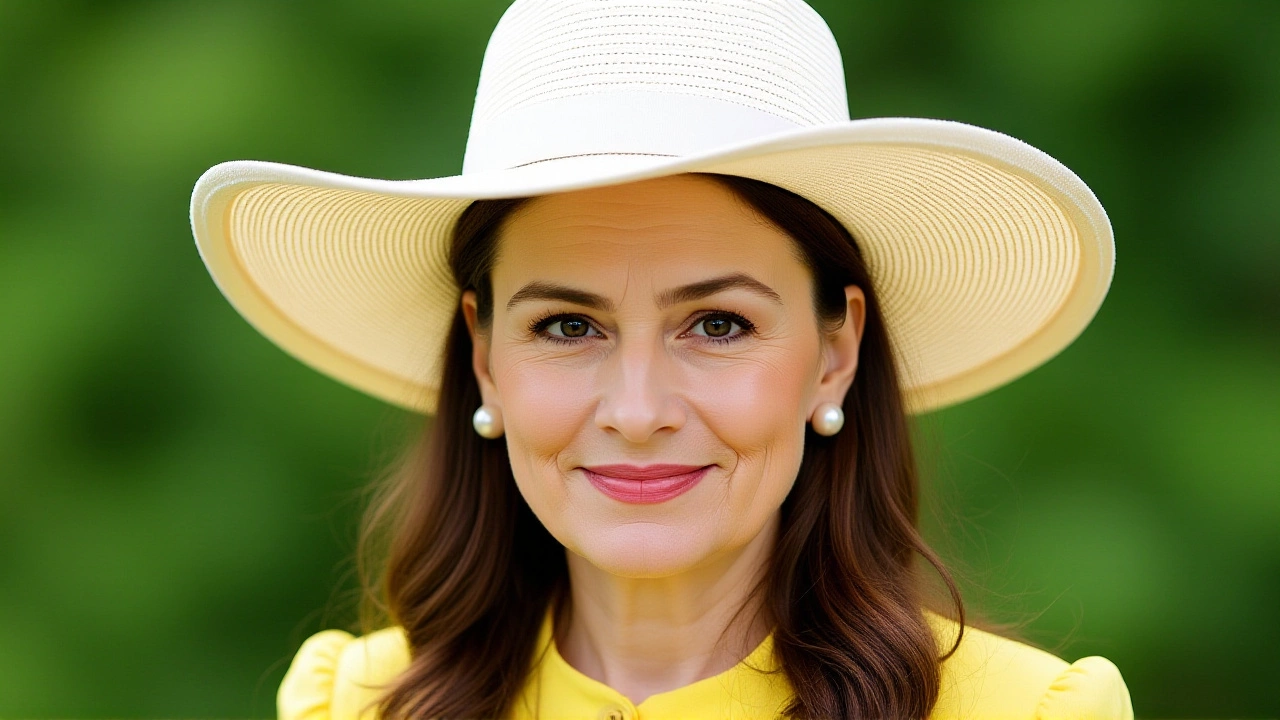When Sophie Winkleman — better known as Lady Frederick Windsor — sat down with The Times last month, she didn’t mince words. "The lives of the royal family are total hell," she said, her voice steady but heavy with conviction. The British actress, who married into the monarchy in 2009, described the constant media glare as "a form of torture" — not the glamorous fairy tale most outsiders imagine, but a relentless, soul-crushing pressure that begins at birth. What makes her perspective so striking isn’t just what she said, but who she is: a woman who chose this life, not born into it. And yet, even she can’t escape the weight of it.
The Spotlight That Never Turns Off
"None of them went on Pop Idol or something to be famous," Winkleman told the paper. "To have that sort of blinding spotlight in your face from when you’re born, not knowing quite whom you can trust, not knowing if someone’s going to betray you, people writing lies about you the whole time — is just brutal." It’s a raw, unfiltered take that cuts through decades of polished royal PR. She’s not talking about distant cousins or obscure royals. She’s talking about the King, the Prince of Wales, even the young princes who grew up with cameras in their schoolyards. Winkleman’s husband, Lord Frederick Windsor, is the only son of Prince Michael of Kent and Princess Michael of Kent. That makes him a second cousin to King Charles III — and, according to the Royal Archives, the 54th in line to the throne. He’s not a working royal. He doesn’t carry out official duties. He works in finance in London. Yet, he still lives under the microscope. And so does she.A Life Between Two Worlds
Winkleman didn’t vanish behind palace gates after her wedding. She kept acting. She starred in Peep Show, the cult British comedy that made audiences laugh at the absurdity of human behavior — irony not lost on her. She appeared in Two and a Half Men on CBS. Between 2019 and 2023, she appeared in multiple television productions, though the exact titles remain unconfirmed in public records. Her career didn’t stop because she married a Windsor. It just got harder. "I feel for them all," she said. "I don’t think a life with that much scrutiny and pressure is remotely healthy, but they have no choice." That last line is the quiet killer. No choice. Not even the ones who don’t want to be in the spotlight. Not even the ones who work regular jobs, raise kids, and try to buy groceries without being photographed.
The Meghan Markle Parallel
Winkleman didn’t just speak in generalities. She pointed to Meghan Markle, the Duchess of Sussex, as a mirror. "Meghan was reportedly shooting scenes for a movie starring Lily Collins in November," Winkleman noted — a reference to Markle’s rumored return to acting after stepping back from senior royal duties in 2020. The implication? Even those who try to leave the system still can’t escape its gravity. The cameras follow. The headlines follow. The whispers follow. It’s a pattern now. Winkleman. Markle. Even Princess Eugenie, who quietly works in the art world. The royal family isn’t just a dynasty — it’s a cage with golden bars. And the more you try to walk away, the more the world insists you stay in frame.Why This Matters Beyond the Palace Walls
This isn’t just about royalty. It’s about fame in the digital age. Winkleman’s words echo the experiences of influencers, celebrities, and even ordinary people who’ve had their lives torn open by social media. The difference? Royals don’t get to delete their accounts. They don’t get to go offline. They’re born into it — and the world never lets them forget it. Her husband’s 54th-place position in the line of succession isn’t just a trivia fact. It’s a reminder that this pressure isn’t reserved for the top tier. It ripples down through every branch. Even those with no official role still carry the weight of a name that’s been printed in newspapers since the 1700s.
What’s Next for the Modern Royal?
The monarchy is changing — slowly, awkwardly, but undeniably. The days of silent obedience are fading. More royals are speaking out. More are working. More are refusing to pretend their lives are perfect. Winkleman’s candid interview is part of that shift. It’s not rebellion. It’s realism. The next generation — Prince George, Princess Charlotte, Prince Louis — will grow up in a world where their every move is documented, dissected, and monetized. Will they be allowed to be children? Will they be allowed to fail? Will they be allowed to say no? Winkleman’s answer, whether she meant to give one or not, is clear: the system isn’t built for that. And until it changes, the "hell" won’t end.Frequently Asked Questions
How does Lady Frederick Windsor’s perspective differ from other royal insiders?
Unlike most royal commentators who are historians, biographers, or journalists, Winkleman is a married-in outsider who has lived the life for 15 years while maintaining a public acting career. Her insights come from daily experience, not speculation. She’s not defending the institution — she’s describing its psychological toll, which gives her voice unusual credibility among those who’ve chosen to remain quietly inside the system.
Why is Lord Frederick Windsor’s position as 54th in line significant?
His position highlights how vast and deeply embedded the royal family is — with dozens of relatives living under public scrutiny despite having no official duties. Even those far down the line of succession face media attention, public curiosity, and inherited pressure. It shows the burden isn’t just on the monarch or the immediate family — it’s systemic, affecting even those who live ordinary lives.
Is Sophie Winkleman’s criticism of the monarchy unusual?
Yes. While royal family members have occasionally expressed private frustrations, public criticism from someone who married into the family is rare. Most insiders remain silent to preserve relationships and avoid scandal. Winkleman’s openness — especially in a major publication like The Times — signals a growing willingness among modern royals to challenge the myth of the "charmed life," even at personal risk.
How does this compare to Meghan Markle’s exit from royal duties?
Markle’s departure was framed as a strategic retreat to protect her mental health; Winkleman’s comments suggest the problem isn’t just the institution — it’s the inescapable nature of the spotlight. Even those who stay, like Winkleman, feel trapped. Markle left but still can’t escape the narrative. Winkleman stays but still feels the weight. Both reveal that the system’s psychological cost isn’t solved by distance — only by systemic change.
What’s changed for royals since 2009, when Winkleman married in?
Social media has exploded, turning every minor royal event into a global spectacle. Where once the press waited for official photos, now every blurry phone shot goes viral. The 24-hour news cycle and TikTok trends mean even distant relatives are targeted. Winkleman’s career has continued, but the pressure has intensified — making her ability to work in entertainment more remarkable — and more exhausting.
Does the British public agree with Winkleman’s view?
Public opinion is divided. Polls show declining support for the monarchy among younger Britons, particularly over issues of privilege and transparency. Winkleman’s comments resonate with those who see the royal family as outdated. But many older citizens still view her remarks as disrespectful. The divide reflects a broader cultural shift: is the monarchy a living institution — or a museum exhibit?

Write a comment